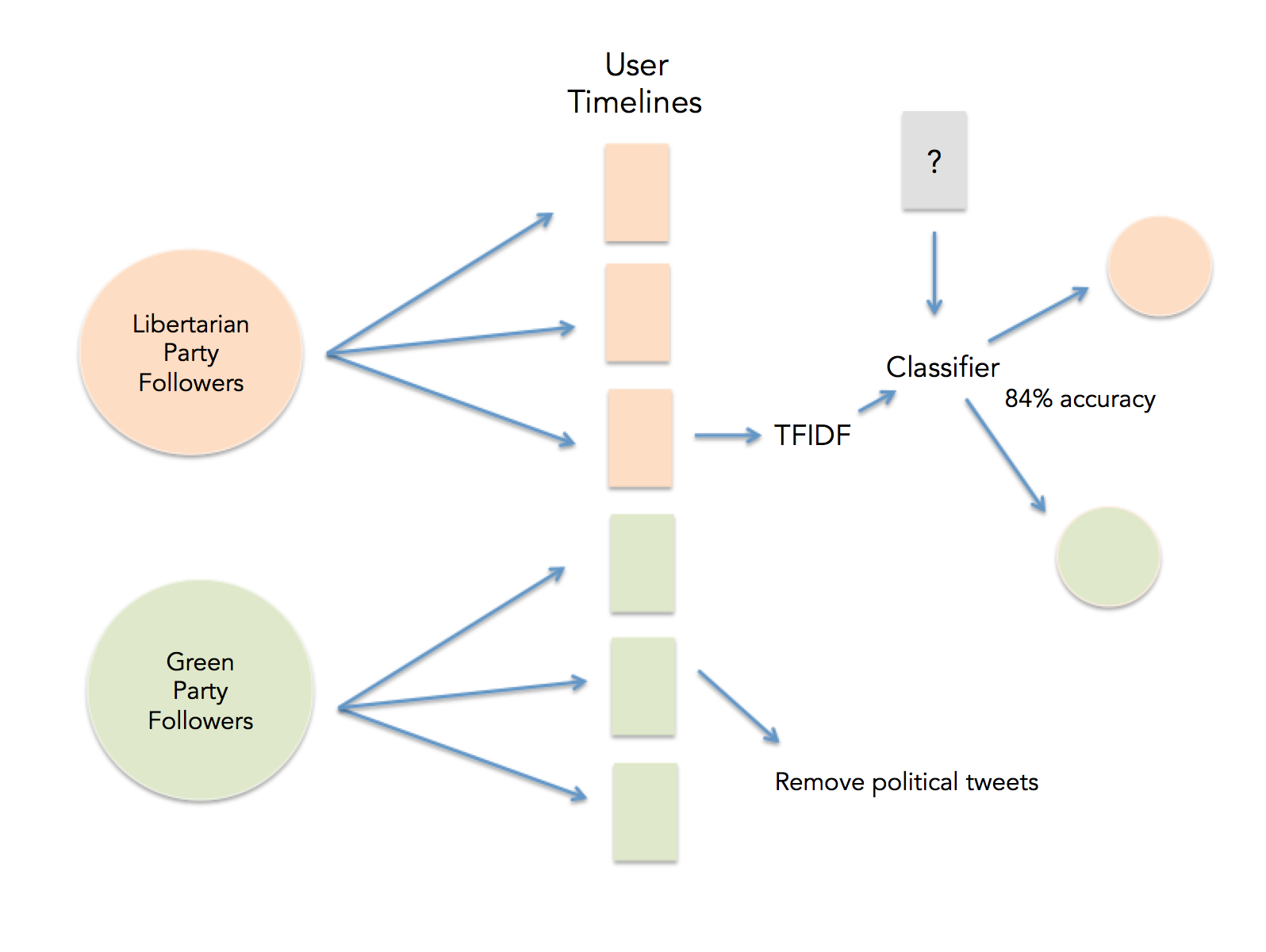Predicting political leanings from text
Data: Twitter API
Techniques: NLP, logistic regression, latent Dirichlet allocation, scraping
The problem:
Can we predict which way a person leans politically, from what they say on social media? Even if they are not talking about politics?
Yes we can! Try out the web app for this project here: PartyPoll
Approach:
-
I collected tweets using the TwitterAPI, from the followers of two “third party” political parties in the U.S., the Green Party, and the Libertarian Party, and used these as proxies for Green and Libertarian sympathizers. I collected the last 200 tweets for each follower (this was the maximum allowable I could collect using the API).
-
I removed stop words, links, punctuation, and terms like “Jill Stein” or “Gary Johnson” and other clearly political terms. Why did I do that? Well, I wanted to see if we could predict which way someone leaned even if they didn’t give out overt cues about their political inclinations. In other words, do the things that Green and Libertarian party followers talk about, differ enough so that we can distinguish between them (do they care about different topics)?
-
I TF-IDF vectorized the tweets.
-
I used these to train a logistic regression classifier that would predict political leaning based on text data. It achieved about 84% accuracy in predicting political party.

Why does this work at all?
How is it that we can distinguish between Green and Libertarian party followers?
Turns out, they talk about different things (though there is a lot of overlap). I used Latent Dirichlet Allocation to explore topics of third party followers.
Check out the interactive visualization: Explore Topics
Code for LDA topic modeliing with gensim can be found here.

